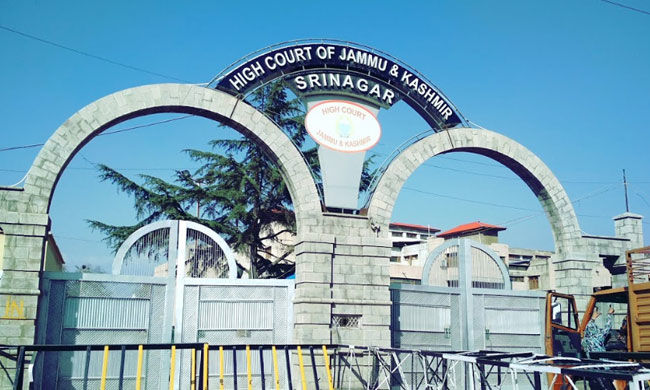Srinagar, Sept 24: Cautioning the civil courts exercising civil jurisdiction, the High Court of Jammu & Kashmir and Ladakh directed the civil courts to ensure that consent decree is not prayed for to achieve sinister purposes, like avoiding registration of sale deeds etc or that it does not contravene any law.
The court observed that there is a growing tendency in the litigants to file collusive suits and obtain decrees for accomplishing sinister purposes like avoiding registration of sale deeds, paying stamp duty and many a times getting their rights determined in contravention of law.
Justice Sanjeev Kumar noted that many a times decrees are passed by the civil Courts, which, on the face of it, are in contravention of law, merely, on the ground that the party opposing the suit consents for passing such decree.
The bench said it is thus imperative to keep in mind the legal position while considering such requests for passing consent decrees.
“The civil courts must ensure that consent decree is not prayed for to achieve sinister purposes or that it does not contravene any law,” the court said.
The bench noted that a collusive decree cannot be used as a “cloak” for the sale deed.
Justice Kumar underscored that there could be numerous occasions where parties in collusion with each other may approach the civil Courts for passing the decrees in contravention of law and for achieving the unlawful objects.
The court passed the observations in a plea by Mushtaq Ahmad Pandit challenging orders passed by the Additional Commissioner (Commissioner Agrarian Reforms), Anantnag on September, 16, 2021 and June, 17, 2022 in an application for condonation of delay of more than four years and an appeal respectively.
In September, 2021, the Additional Commissioner (Commissioner Agrarian Reforms), Anantnag had set aside the order passed by Collector Agrarian Reforms on July, 16, 2005 wherein the petitioner was declared owner in possession of the land measuring 2 kanal 11 marlas situated at village Uranhall by adverse possession.
The court held that there is not even an iota of doubt that the suit filed by the petitioner against private respondent (respondent No.3), which culminated into passing of a sort of consent decree by the Collector Agrarian Reforms on July, 16, 2005, was collusive in nature filed with an aim of accomplishing a sinister purpose, that is, obtaining an order in contravention of the provisions of the Act
“It would be appropriate if the Registrar General ensures the circulation of this judgment amongst the Judges subordinate to this Court,” the bench said.








